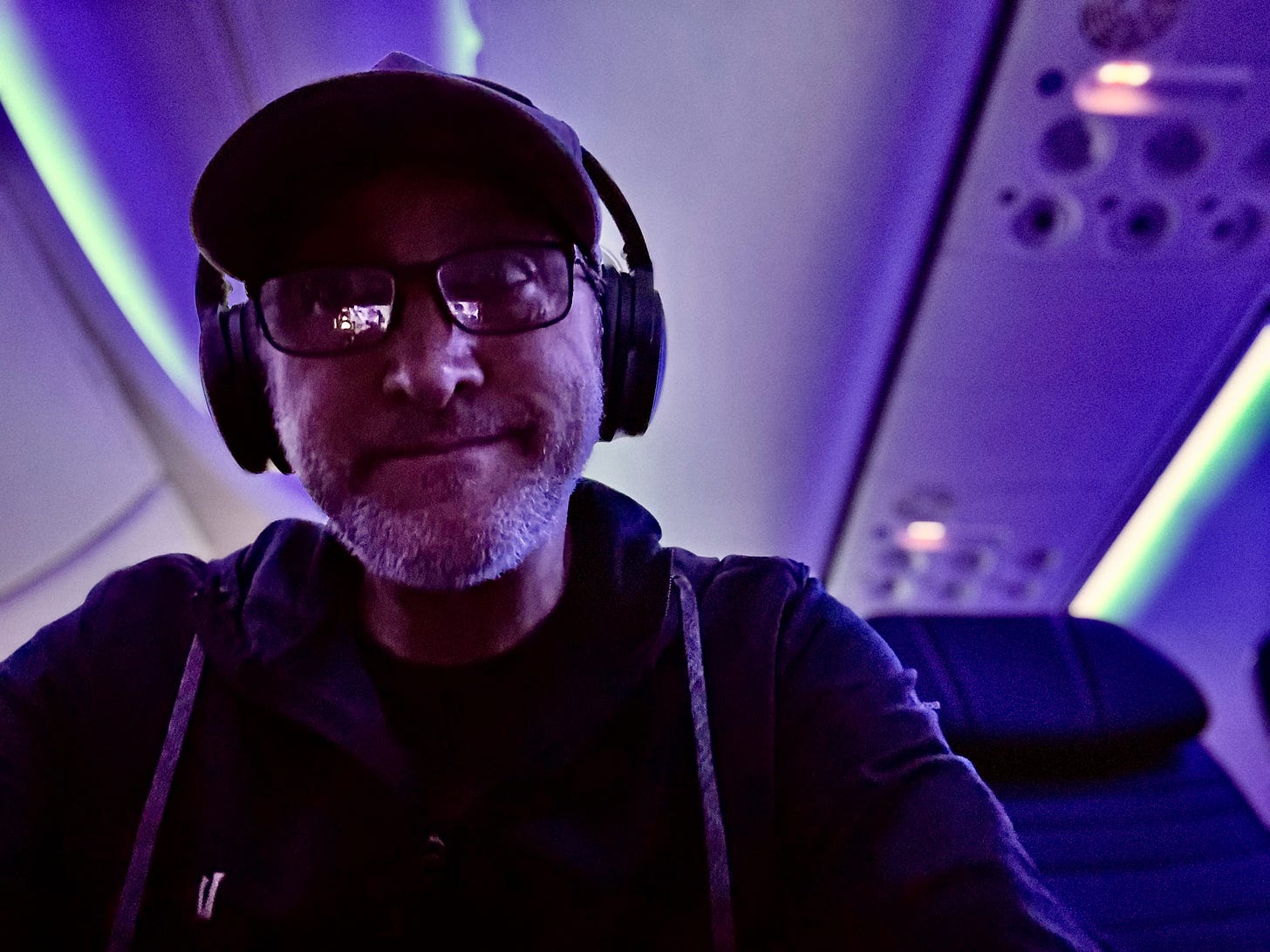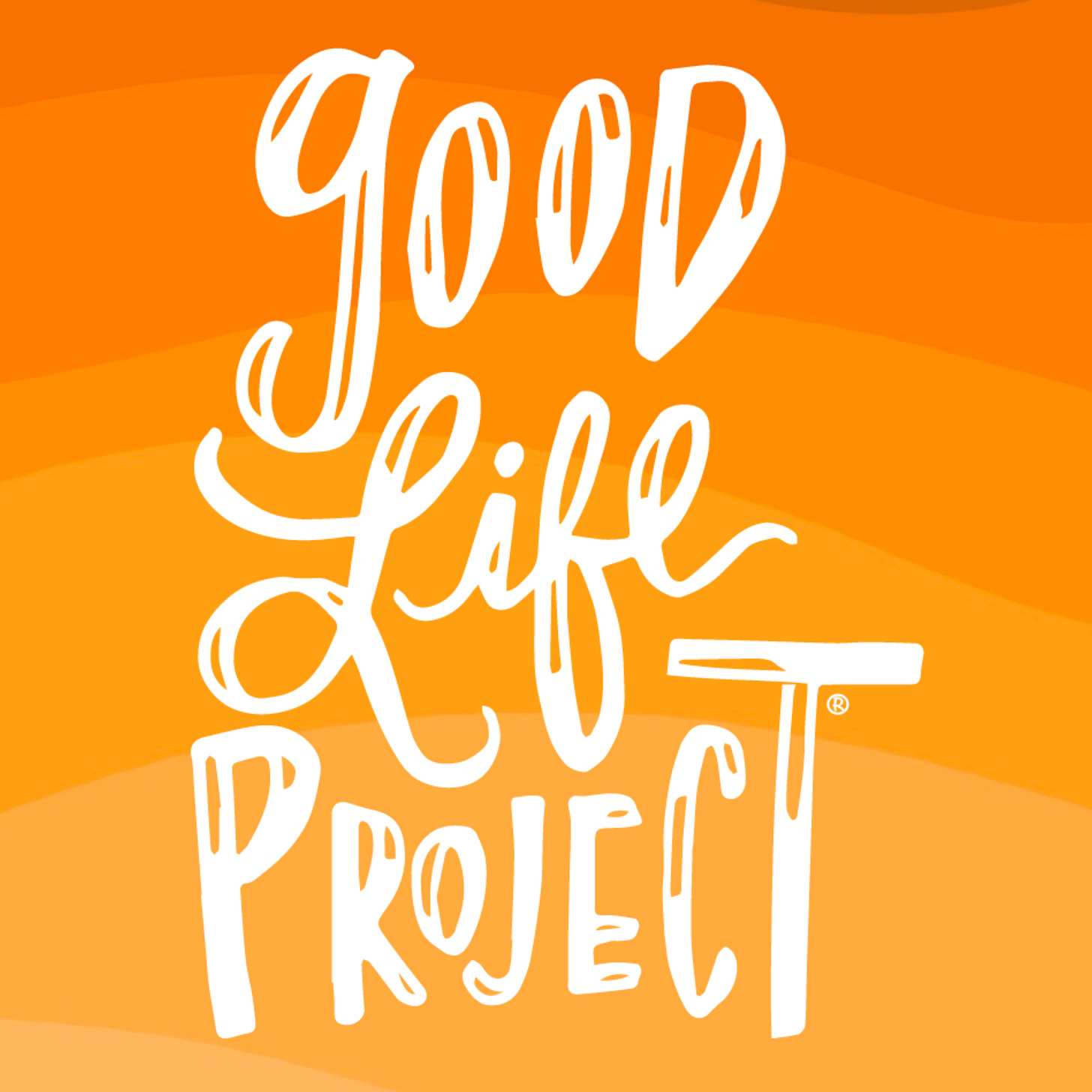Are you pushing people away, without realizing it?
When sharing your side does more harm than good...
There’s this phenomenon…
You ask someone a question.
They answer. Sharing a fun, interesting, cool experience or insight.
Your brain tingles, you’ve experienced that same thing. You want to chime in and offer your version of their experience.
It’s human nature. Shared experiences, especially ones that involve surprise and vulnerability, can deepen connection. We want others to feel seen, heard, and celebrated, and we also want the same. Mutual sharing around either collective or complementary experience gets us there.
You tell your story, I jump in right after to tell my version of a similar experience. We fall in friend love. #yay
Except, not so much.
This very impulse to deepen a connection by offering common experience can actually have the effect of pushing people away, if not done in a conscious, curious, and generous way. And we’ve got no idea this silent estrangement is happening, often, until it’s too late.
I’ve learned this the hard way, and been blessed to have many reps. Spent 13 years co-creating over 1,000 long-form conversations with incredible people, often high-profile strangers, during my tenure hosting the Good Life Project podcast. Many became fast confessors, conversational dance-partners, or lasting connections. In truth, I’m still very much learning, and find myself regularly violating my own guidelines on “how to do it right.”
Here’s how the impulse hurls us off the connection rails…
You share your story. I listen (ish). Check.
But, as soon as I realize I’ve got my take or version, the whole time, I’m starting to pay less attention. Not intentionally, but my noggin is going, “I can’t believe this, I’ve seen, heard, experienced, or felt that same thing! I can’t wait for you to stop talking, so I can tell you my story or insight, then we can revel together in both. Awesomesauce!”
The minute you’re done speaking, I jump in.
I think it’s a bonding moment. And, maybe, done right, it is.
But, equally, if not more often, there’s a shift in the conversational dynamic that transforms it from a bonding moment to feeling disconnected, at best, and diminished, at worst.
Here’s what the other person may be feeling…
“Wow, I just shared a super cool/fun/interesting story or idea. And, there’s actually so much more to tell. The details, the more nuanced story. How it affected me (which is what matters 10X more than the facts), the undertones, aftermath, how it changed me or my lens on the situation, person, or world.
Sure, it was fun sharing the basic situation, but it’d be so much richer and cooler, and deepen this moment and the connection with you, had I been given the chance to offer more of the context and impact. And, had you responded with something that let me know you appreciated me, that you loved how I shared it, and were curious enough about me and what happened that you actually wanted to know more. That you were paying attention not just to find a story to share that let you take the mic and center yourself in the conversation, but to let me feel that magical sense of being known.”
This unspoken dynamic is sometimes seeded with a certain amount of passive-aggression or malintent. You have a version of their story, insight or offering that you believe is even wilder, cooler, “better,” and you’re trying to take over the conversation, grab the mic, or one-up them. Even worse, it’s about putting them in their place. Or, if you’re feeling threatened, lower status, or insecure (translation, most of my 30s and 40s), it’s an attempt to level up your perceived worth in their eyes.
Happens all the time. Even if not a conscious thing.
But, more often, it’s about something else…
Social oblivion, meet neural impulse.
You mean no ill will. It’s just a human compulsion to reciprocate. Same way you smile at a stranger when they smile at you on the street. We’re just wired to this way. And, you’re oblivious to the potential harm you’re doing to the emotional connective tissue of the conversation. They might not even get why they’re feeling more pushed away than connected, until it becomes a pattern. The reps let them more easily see, and better understand what’s happening.
Confession…
I have done this to people.
Countless times.
Trying my best to stop.
In interviews and “on the record” conversations. But, even more in conversations in my personal life. I don’t generally over-talk, that’s a more overt sign of disrespect. Though, honestly, it’s taken more than that to break the habit. Interviewing so many people for so many years has largely trained me out of it, because I’ve learned how much harder it makes the editing process for my team.
But, I do still have a strong impulse to jump in with my version or take.
There is a better way…
Here’s a simple approach that’ll allow you to let your conversation partner feel utterly seen and celebrated, while giving you the chance to experience the same.
The Prompt, Ask, Ask, Ask, Share Approach.
The “strategy” is technically simple, yet psychologically hard. The hard part being regulating your immediate urge to take the mic and share your version.
Here’s how it works:
Prompt: “Hey so what’s new with you/what’s going on/what happened with.…” You get the point. Often, you don’t even need this prompt, your conversation partner just starts into a story, insight, or share. The ball is now rolling.
Allow: Give them the space they need to say everything that comes to mind, nodding along, or reflecting back an element of what they shared to let them know you’re paying attention.
Ask: Wow, so interesting/amazing/surprising, insightful, insane…TELL ME MORE!”
Allow: Give them the space they need to say everything that comes to mind, nodding along, or reflecting back an element of what they shared to let them know you’re paying attention.
Ask: “Tell me more/and then what/what else?”
Allow: Give them the space they need to say everything that comes to mind, nodding along, or reflecting back an element of what they shared to let them know you’re paying attention.
Ask: “And, how’d that make you feel/how’d that land with you/woah, what else?”
Allow: Give them the space they need to say everything that comes to mind, nodding along, or reflecting back an element of what they shared to let them know you’re paying attention.
The specific language isn’t the point. Change it to whatever is appropriate to the moment and conversation.
The bigger idea is this - ask at least three considered and relevant follow-up questions that tease out both the facts and feelings, and let them share more, BEFORE honoring your legit and potentially connective-tissue building impulse to share your side or version.
Now…
Share - transition to your piece or take by saying something like, “you know, something really similar happened to me lately,” or “I had a similar insight or idea or realization.” Then, give them a chance to ask YOU about it, and share your relevant ideas or stories in a way that is complementary, not competitive.
At this point, they’ve felt so much more acknowledged, valued, seen, heard, embraced and respected. When you finally share your offering, the chance of them giving you the same grace goes up dramatically. And the likelihood of the conversation becoming a far richer, deepening experience is exponentially higher.
By the way, this also works incredibly well when you’re in a conversation where you and the person you’re speaking with see things differently. It creates the space, respect, and recognition that can transform a polarizing interaction into one where disagreement remains, but higher levels of understanding and dignity enter the conversation. And, in turn, the relationship.
That said…
This approach is not about handing them the mic, and letting them put you on blast for the whole conversation. If they say all they want to say, then either never give the mic back to you, or as soon as you share a bit, overtalk or take it back, that’ll get really old, really fast, too.
It’s about laying a foundation. Creating a conversational dynamic where each person has the chance to feel seen, heard, and elevated by the way the experience unfolds and, in turn, how they get to unfold and connect.
Give it a try.
Even with short, sweet, interactions like your favorite barista, or checkout person. Your bestie or partner, a new acquaintance, or work relationship.
Note what happens. Then, share in the comments so we can all learn from our shared experiences!
With a whole lotta love & gratitude,
JF
Check out the Good Life Project® Podcast Summer Series!!!
Launching Monday, July 14th (tomorrow), we’re running a special 4-part summer series on the podcast we’re calling The Inner Architect.
It’ll feature, well…me!
So, if you like these jams, you’ll love the deep dives coming your way on the podcast.
The series is about becoming the architect of your own life.
Every Monday, for the next month, I’ll share a deep-dive solo exploration, packed with insights, strategies, science, and practical take-aways to act on.
Topics:
▶️ Mid-Year Reset: Taking Stock, Realigning, and Reclaiming Your Year
▶️ The Future Self Project: Envisioning Your Next Chapter
▶️ Foundation & Flow: Designing Your Days (and habits) for Peak Living
▶️ The Agility Architect: How to Handle Whatever Happens
Be sure to follow, wherever you get your podcasts, so you don’t miss an episode!
Here’s a link to major platforms to make it easier.





An interesting framework. As a neurodivergent individual I am always jumping in with my version of a similar experience and often then feel I shared too quickly. I am going to start giving this a try. Thank you! 🙏
Spot on! Using curiosity to navigate as you suggest, is so important. It’s what makes people feel heard, seen and understood. It’s what we ALL crave. My husband puts it this way: you ask the questions to show you care! Thanks for highlighting this important skill!!